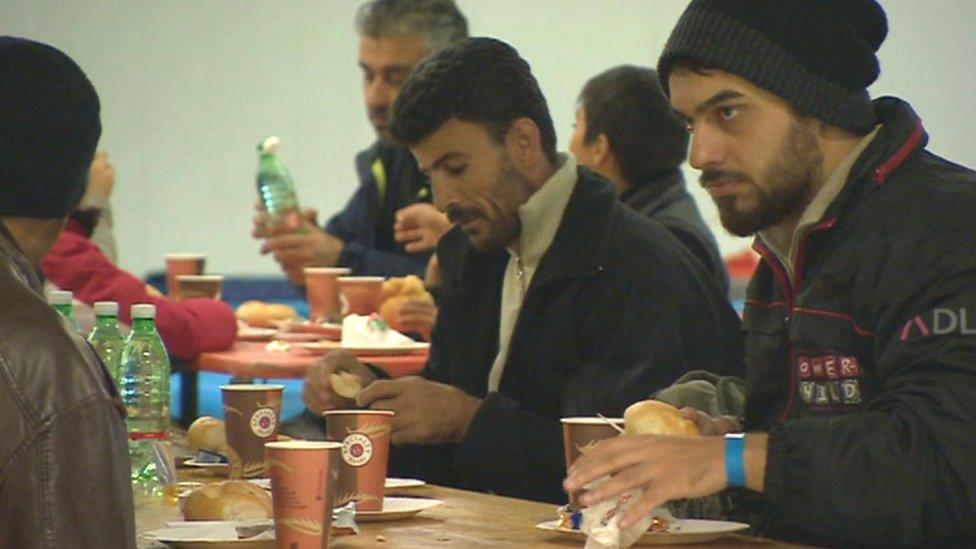Asylum seekers: Penally military base on list to house migrants
- Published
Villagers say they have "concerns" about the plan to house asylum seekers
A military base in Pembrokeshire could be used to house 250 asylum seekers while their claims are being processed.
Penally's Army training centre is among a number of locations being considered by the Home Office.
County councillor Jonathan Preston claimed it was "sprung" on the village.
The Home Office said it was working with the council and police to ensure "vulnerable asylum seekers, who would otherwise be destitute" had suitable accommodation.
Facilities in south-east England are under strain, so people seeking asylum may be sent to Pembrokeshire instead.
Mr Preston, who lives in Penally, near Tenby, said: "If the community had been involved in the consultation, they would be more likely to embrace the situation.
"We understand there's a humanitarian requirement to look after these people.
"My only question - is the Penally camp a bit too close to a small village which depends on tourism and it may have a negative impact on the tourism industry in Pembrokeshire?"
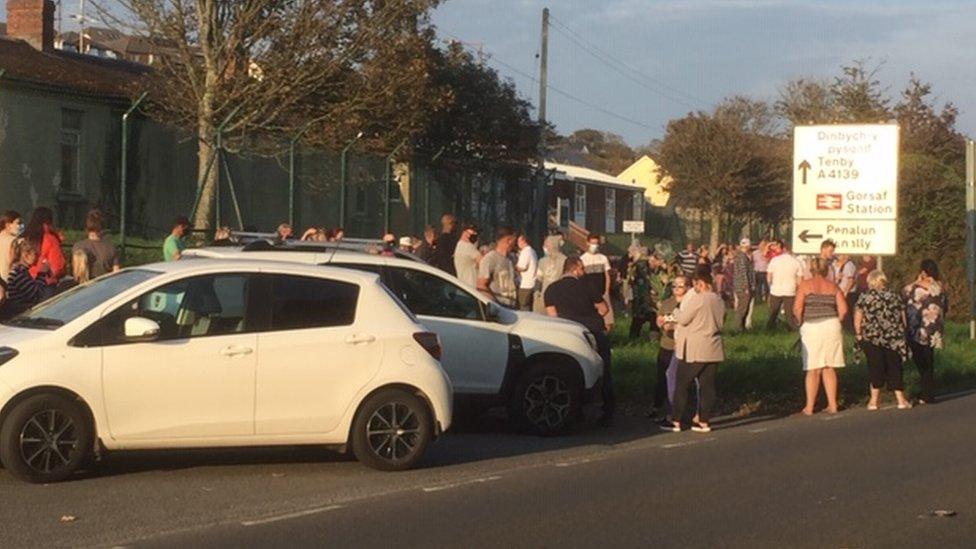
Protesters and counter-protesters gathered outside the site on Tuesday evening
Some residents, who did not to be named, were concerned about an influx of people into a small community.
One said: "I've got a lot of sympathy for them, but we haven't got the infrastructure here."
BBC Wales has been told all 250 asylum seekers would be men and would be free to move around the area while their claims are dealt with.

County councillor Jonathan Preston claimed the news was "sprung" on the village
Plaid Cymru's equalities spokeswoman, Leanne Wood, said a military camp was a "perverse" place for people who may have witnessed "the horrors of conflict".
"In meeting its moral duty to protect these individuals, the UK government should identify sites which are both safe and suitable to house them. At present, they seem to be failing on both fronts."
South Pembrokeshire MP Simon Hart said the impact on the community would be "minimal".
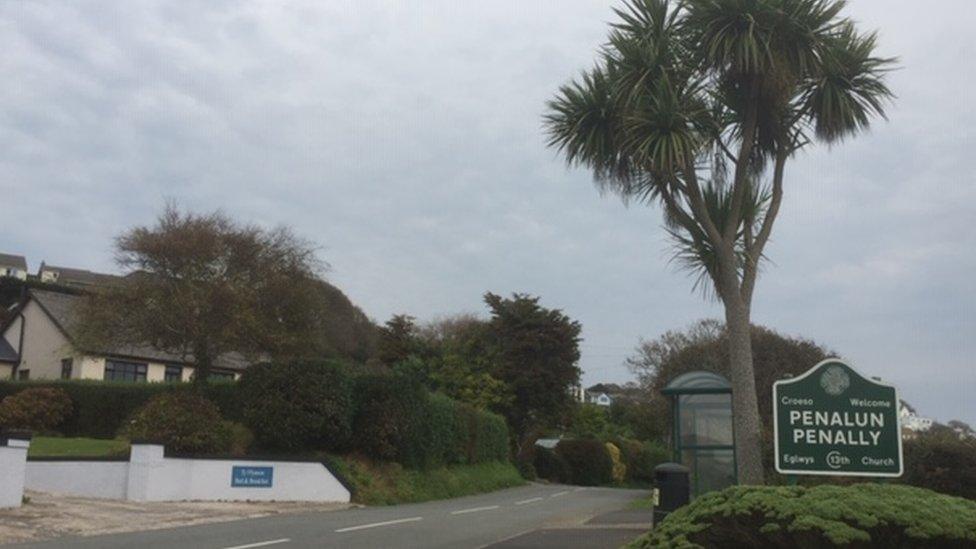
Leanne Wood said a military camp was a "perverse" place for people who may have witnessed "the horrors of conflict"
The Home Office said: "During these unprecedented times, the government is working with a range of partners and across departments to secure further accommodation and the MoD has offered use of some of its sites.
"When using contingency accommodation we work closely with organisations, including local authorities and law enforcement, throughout the process to ensure value for money and that vulnerable asylum seekers, who would otherwise be destitute, have suitable accommodation while their claims are processed."
- Published15 September 2020
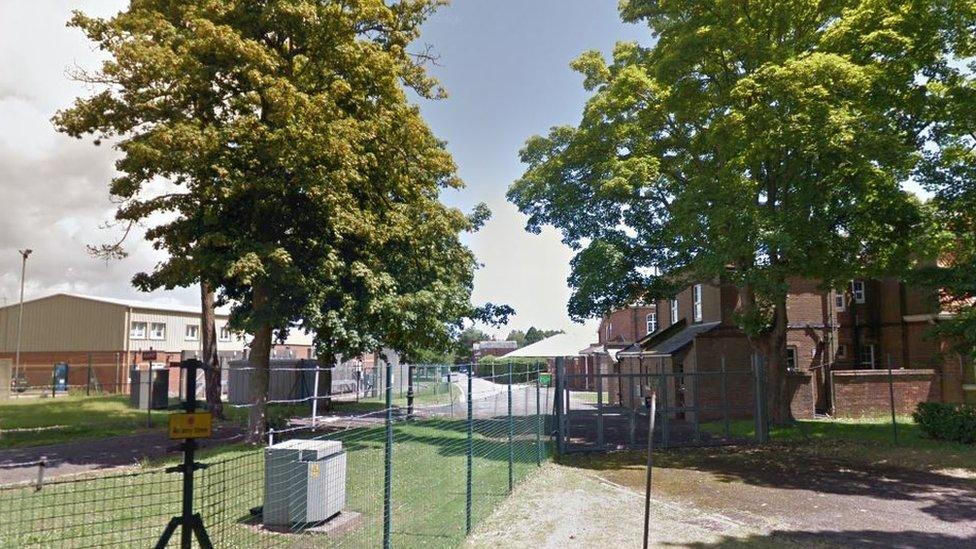
- Published27 August 2020
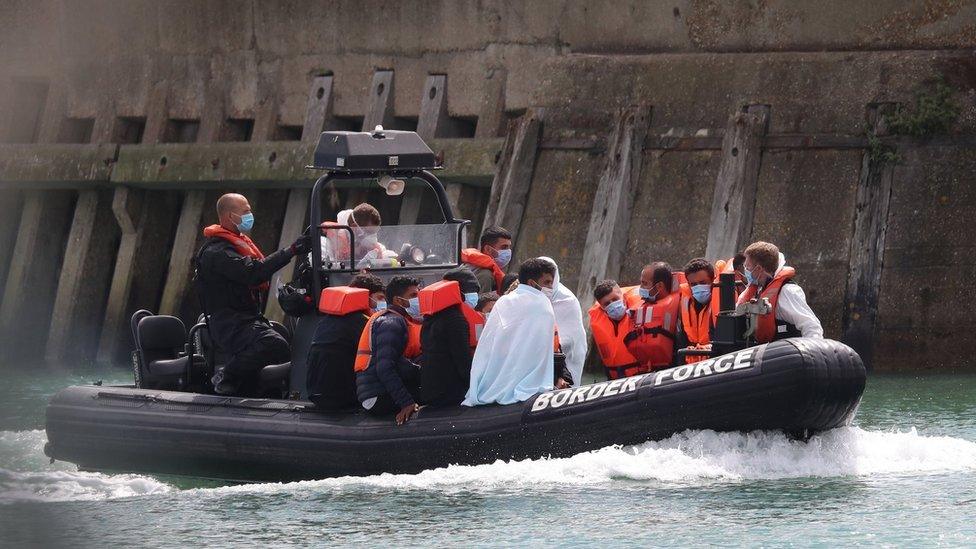
- Published13 December 2023
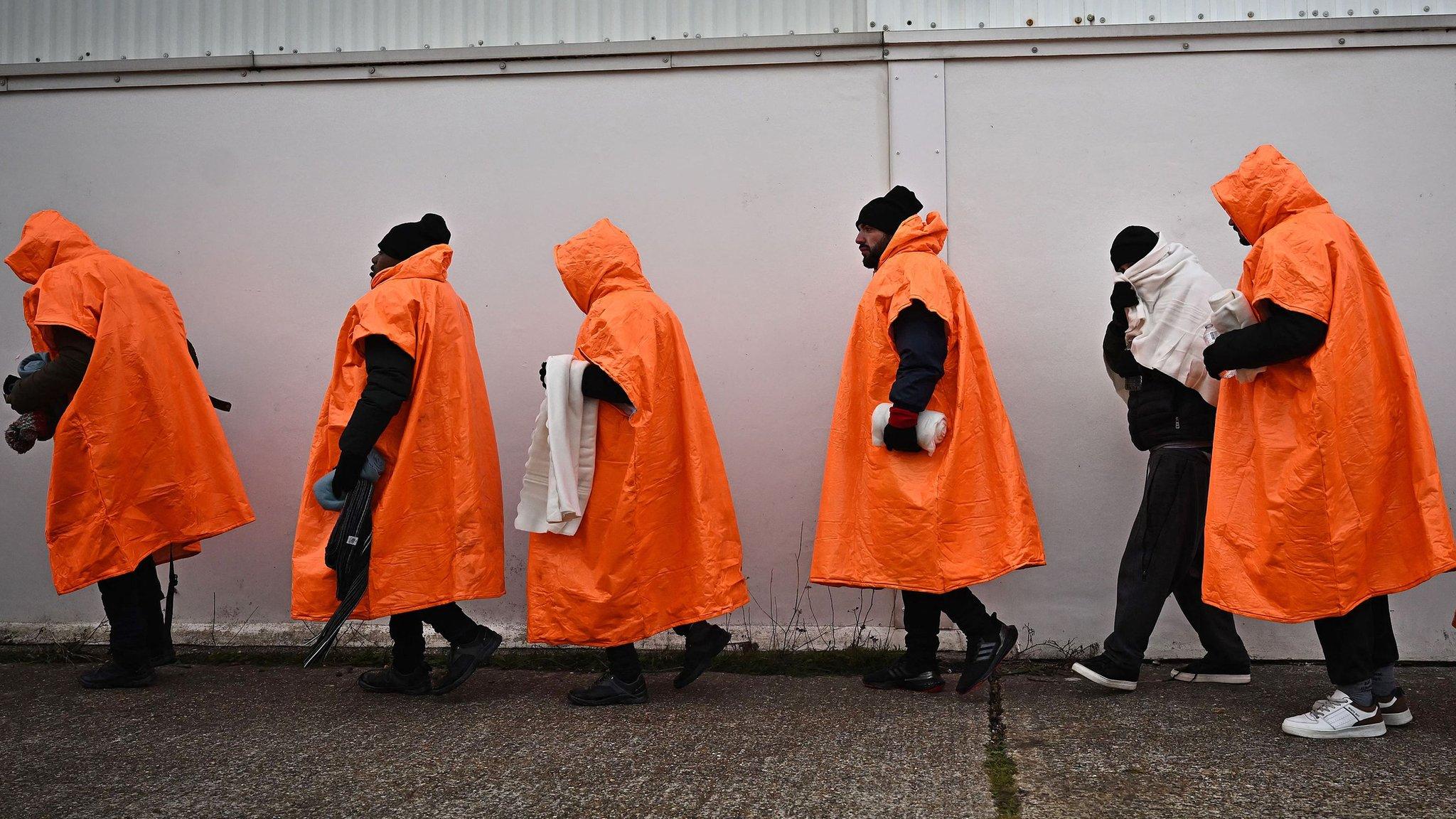
- Published11 August 2020
